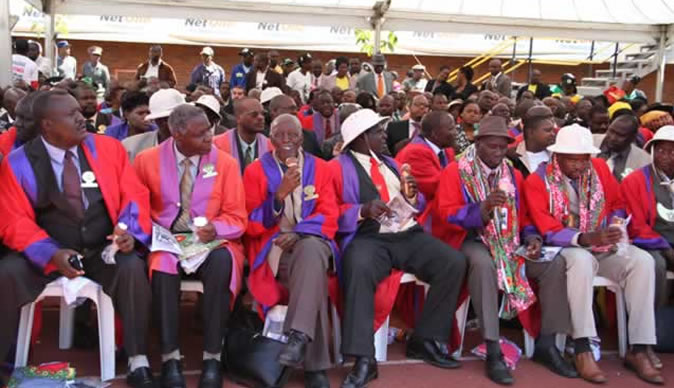Staff Reporter
In a firm response to growing concerns about the misuse of agricultural inputs provided under the Presidential Input Scheme, traditional leaders in the country have issued a serious warning to farmers.
The warning was given today during the Midlands State University graduation ceremony held in Gweru, where Chiefs expressed deep concern over the situation.
Chief Nemanwa, speaking to this publication, conveyed his distress over reports that some beneficiaries of the Presidential Input Scheme were diverting these resources unethically.
“We are aware that some people are corruptly acquiring the inputs and selling them at inflated prices. The inputs are free, and the Government expects beneficiaries to utilise them to ensure maximum yield,” he stated.
Highlighting the importance of integrity in agriculture, Chief Nemanwa emphasised the traditional leaders' resolve to address this issue.
“As traditional leaders, we will not hesitate to take the necessary course of action. Corruption should be shunned in the agricultural sector. President Mnangagwa supports all farmers to ensure food security. Him or her who sabotages such crucial initiatives is an enemy of the people and the state at large,” he lamented.
In a similar vein, Chief Mapanzure, another dignitary at the event, stressed the need for a united front involving various community pillars, including the church and traditional leaders, to foster unity and development among citizens.
Chief Mapanzure acknowledged the role of traditional rituals in preparing for the rains and the Government's efforts in distributing Pfumvudza inputs to farmers.
“The church should also do its part to lead in prayers for enough rain. We encourage church leaders to unite the people and foster initiatives that ensure security, among other development initiatives,” Chief Mapanzure added.
The Government's distribution of farming inputs for the 2023–2024 farming seasons has been a significant step towards agricultural productivity.
With most farmers already preparing their lands for the Pfumvudza programme, there is a sense of optimism bolstered by the Metrological Services Department's (MSD) forecast of normal to above-normal rains expected in the first week of December.
This collaborative approach, combining traditional wisdom, Government support, and community involvement, is crucial for the success of the agricultural sector in the country.
The stern warning from the traditional leaders is not just a call for compliance but a rallying cry for collective responsibility and integrity, ensuring that the resources provided by the Government reach their intended purpose—to bolster food security and uplift the lives of the farming community.




